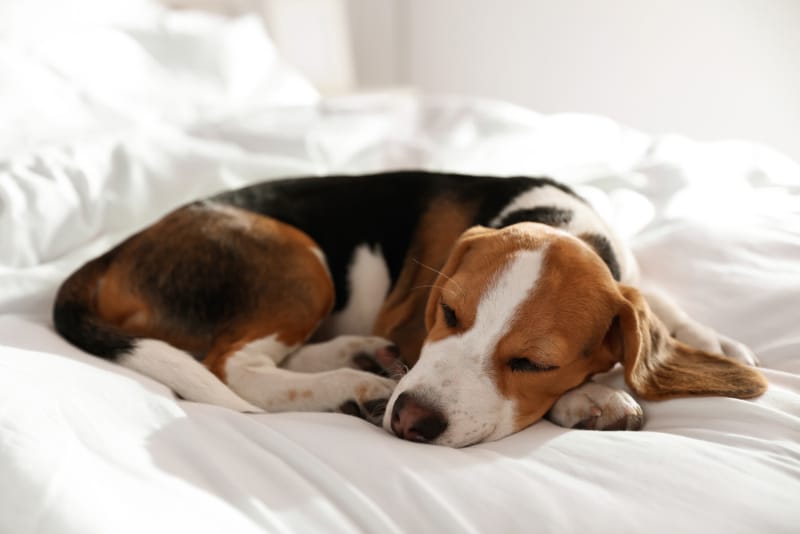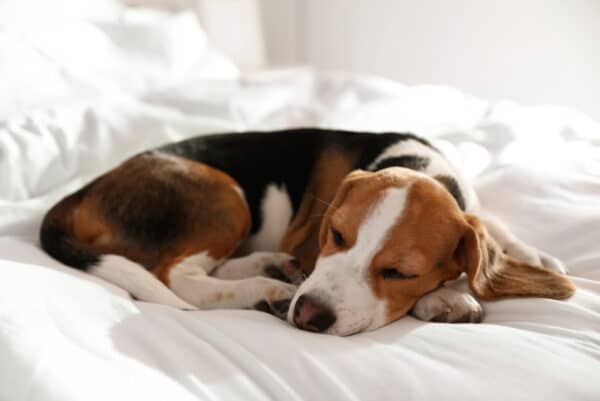Click to Skip Ahead
As pet owners, we want to keep our pets healthy and happy at all times, and it can be unsettling to find out that your female dog is peeing in her sleep. The first thing to do is schedule an appointment with the vet to have your dog looked over, as it may be a bladder problem. In the meantime, read over this list of several other common issues that can result in nighttime incontinence.
The 6 Reasons a Female Dog May Pee in Her Sleep
1. Relaxation of the Muscular Sphincter
Relaxation of the muscular sphincter is the most common reason that female dogs suffer from incontinence at night. When a dog sleeps, all her muscles relax, including the sphincter, which is responsible for preventing the flow of urine. As it relaxes, a few drops of urine may escape during the night. Several things can also affect how relaxed it becomes, including hormonal changes that can occur after you have your dog spayed, old age, obesity, and certain medical conditions.
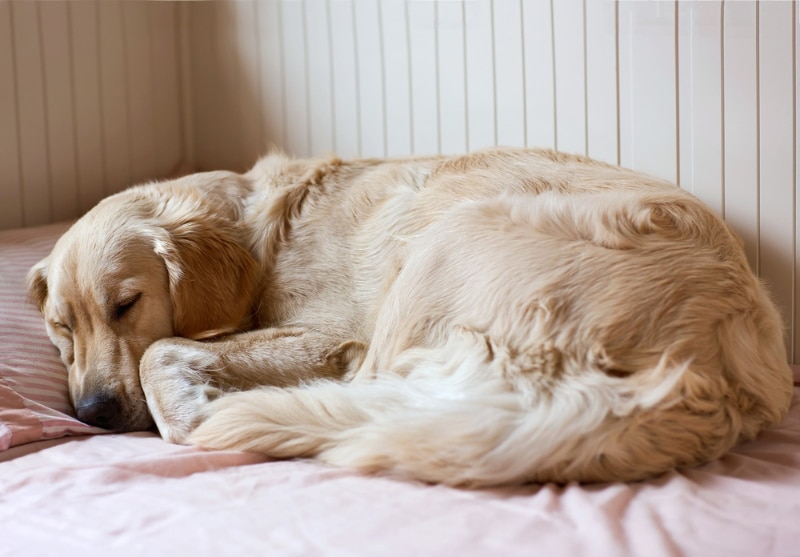
2. Urinary Tract Infection
Urinary tract infections are common causes of incontinence, and they are more common in female dogs. Other signs include painful urination, blood in the urine, and strong-smelling pee. Fortunately, they usually clear up quickly with medication after a trip to the vet.
3. Bladder Issues
Bladder issues, including bladder hypercontractility, can also lead to incontinence at night. These issues can cause the bladder to contract too tightly, forcing out extra drops of urine. They can also make it difficult for your pet to hold her urine.
4. Neurological Problems
Neurological problems stemming from a traumatic accident or genetic disorder can result in damage to the nerves that control the bladder. Damage to the brainstem, herniated disks, and lesions on the spinal cord may also prevent your dog from holding their urine throughout the night.
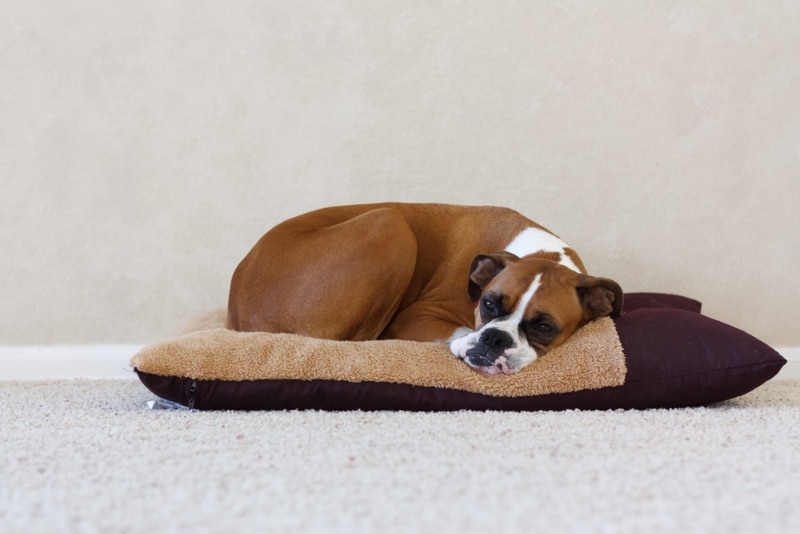
5. Urine Retention
If your dog is under a great deal of stress, it can cause them to lose control of their bladder, leading to incontinence. It can also cause your pet to avoid relieving themselves before bed, which might lead to nighttime incontinence.
6. Anatomic Abnormalities
If your dog has an anatomic abnormality, such as ectopic ureters or urethral hypoplasia, due to a genetic issue or congenital disability, your dog may have difficulty holding her urine. These issues may be especially noticeable at night while your dog is sleeping and when she spends many hours inside.
The 5 Tips for Dealing With Your Dog’s Nighttime Incontinence
1. Veterinary Check-Ups
The best thing that you can do for your dog if you notice her peeing in her sleep is to take her to a vet. They can tell you about any underlying health conditions that might be to blame and can put your pet on the path to recovery. Certain issues, such as a urinary tract infection, can clear up quickly with medication.
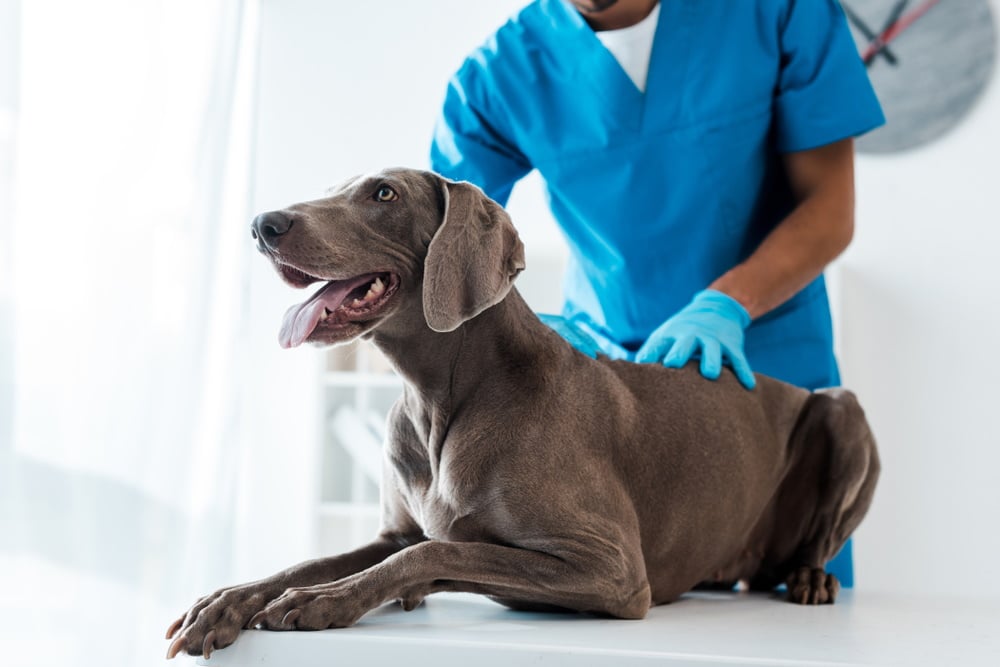
2. Limiting Drinking Before Bed
Dogs can get into a routine, and if they like to have a big drink of water before bed, it might result in more frequent peeing in their sleep. Preventing your dog from drinking water for an hour or two before bed can make it easier for her to control herself, especially as she gets older.
3. Bathroom Breaks
Before you and your pet go to bed for the night, ensure that she has one last chance to relieve herself, so there is less of a chance that she will need to go during the night.
4. Bladder-Control Training
If your dog is still a puppy, you might be able to train her to control her bladder better by gradually increasing the time between bathroom breaks during the day.
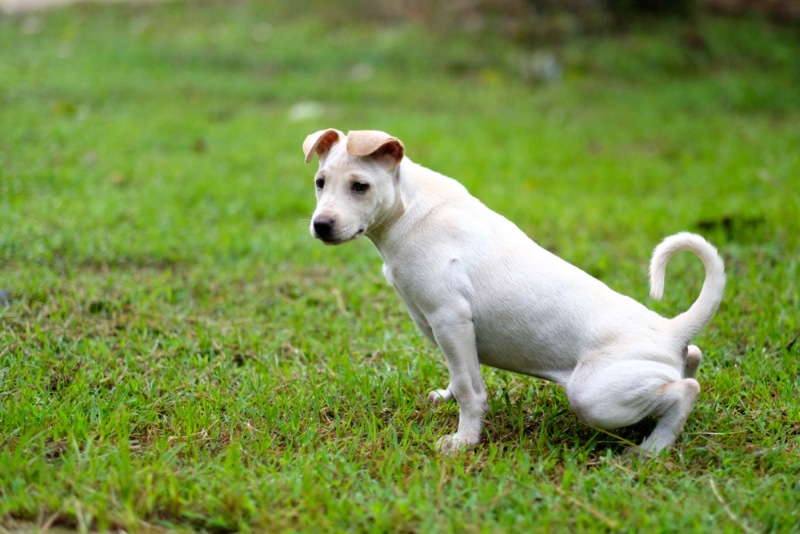
5. Dog Diapers
If your dog is suffering from nighttime incontinence due to a medical issue, you can pick up doggie diapers to keep her and her bed dry throughout the night. These can also help reduce the risk of urinary tract infections that can occur due to increased moisture when nighttime incontinence occurs.
Frequently Asked Questions (FAQ)
Can My Dog’s Diet Cause Them to Pee at Night?
Certain foods, especially wet food, can add a large amount of water to your dog’s diet, which might result in nighttime incontinence. If you suspect that wet food is the problem, slowly transitioning to a dry kibble brand might help. However, it’s always best to discuss changes to your pet’s diet with your vet.
When Should I See a Vet About My Dog’s Nighttime Incontinence?
If the nighttime peeing is something new or you notice other problems, such as blood in the urine, it’s a good idea to schedule an appointment with the vet.
Are Some Breeds More Prone to Nighttime Peeing Than Others?
Certain breeds can be prone to conditions that lead to night incontinence. For instance, large dogs may be more sensitive to the loss of estrogen after being spayed, which can result in more frequent nighttime incontinence. However, there aren’t any current studies that suggest that one breed in particular is more likely to suffer from nighttime incontinence than another.
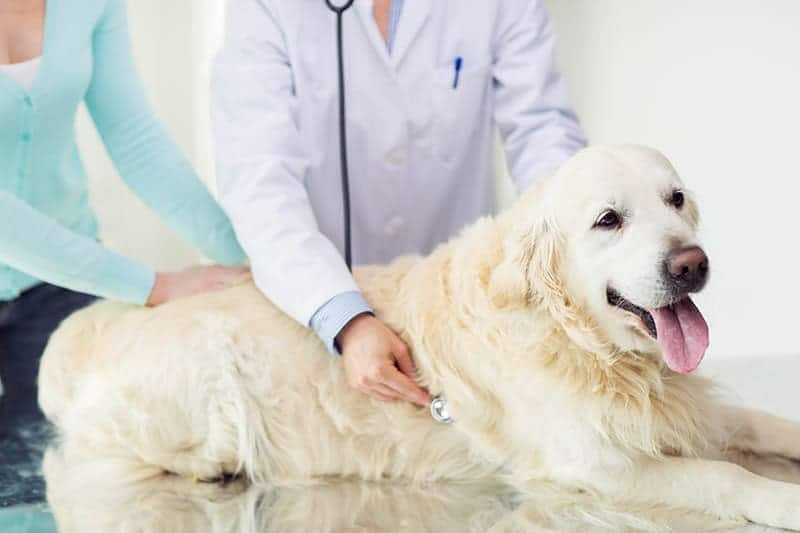
Conclusion
Unfortunately, many female dogs may suffer from occasional nighttime peeing as they get older. The muscular sphincter muscle is more likely to relax too much while older dogs sleep, and a drop in estrogen due to the spaying procedure can compound the issue by making the muscle weaker. Other issues, such as urinary tract infections, might also cause your dog to pee while she is sleeping, but these usually cause additional signs, including blood in the urine or straining to pee, so you’ll know to make an appointment with the vet.
Featured Image Credit: New Africa, Shutterstock

